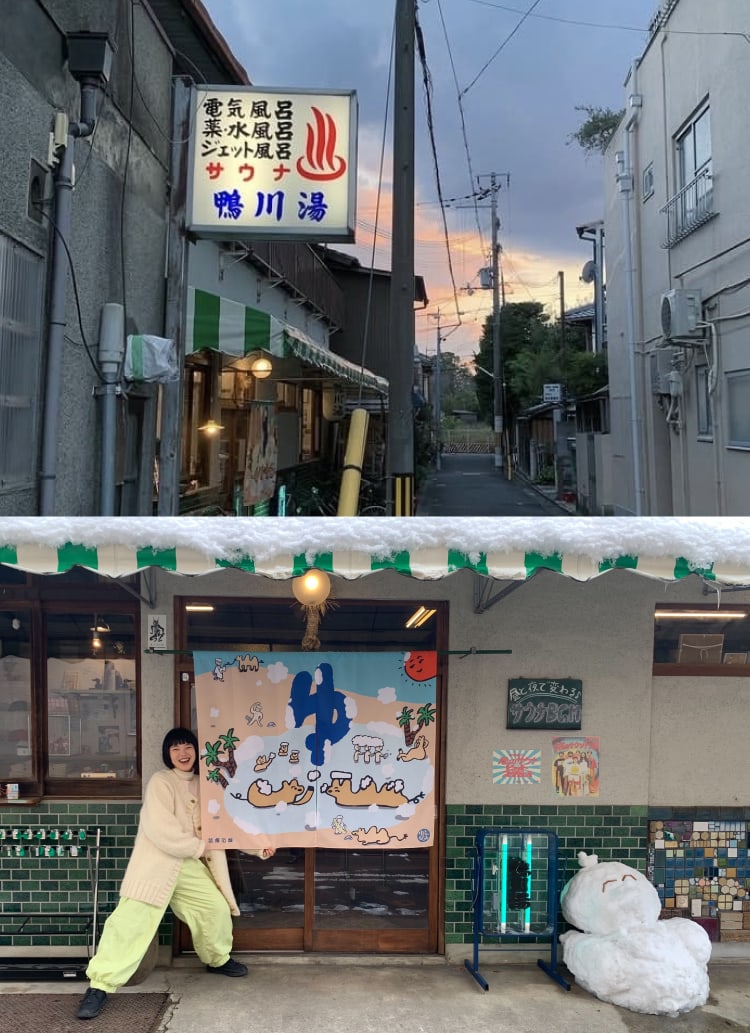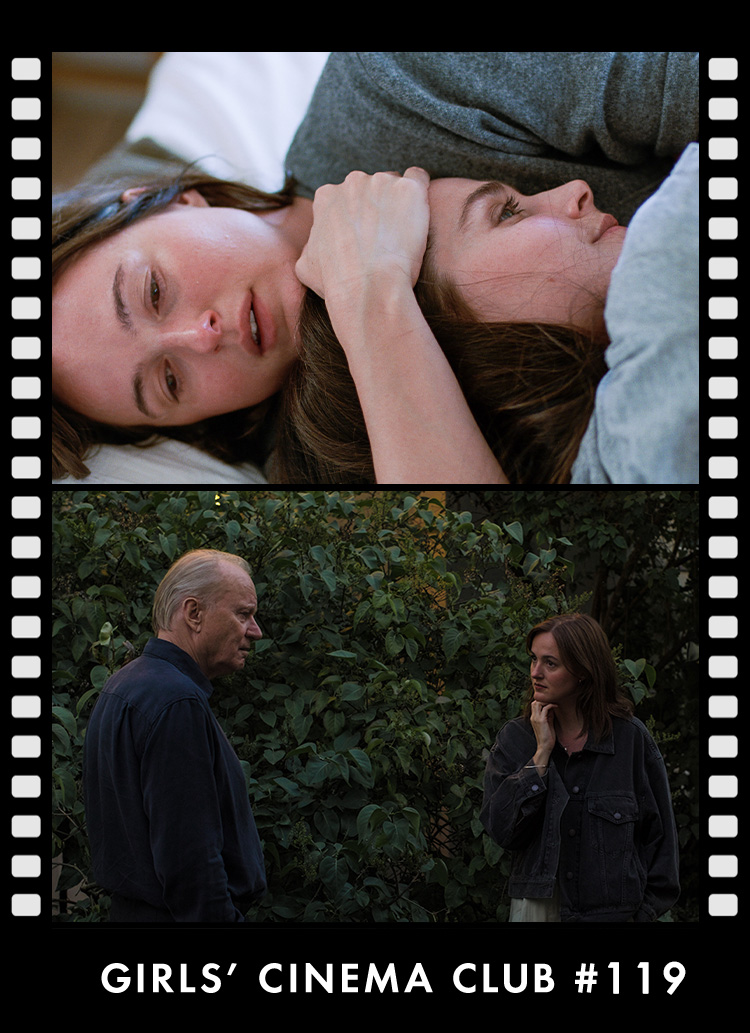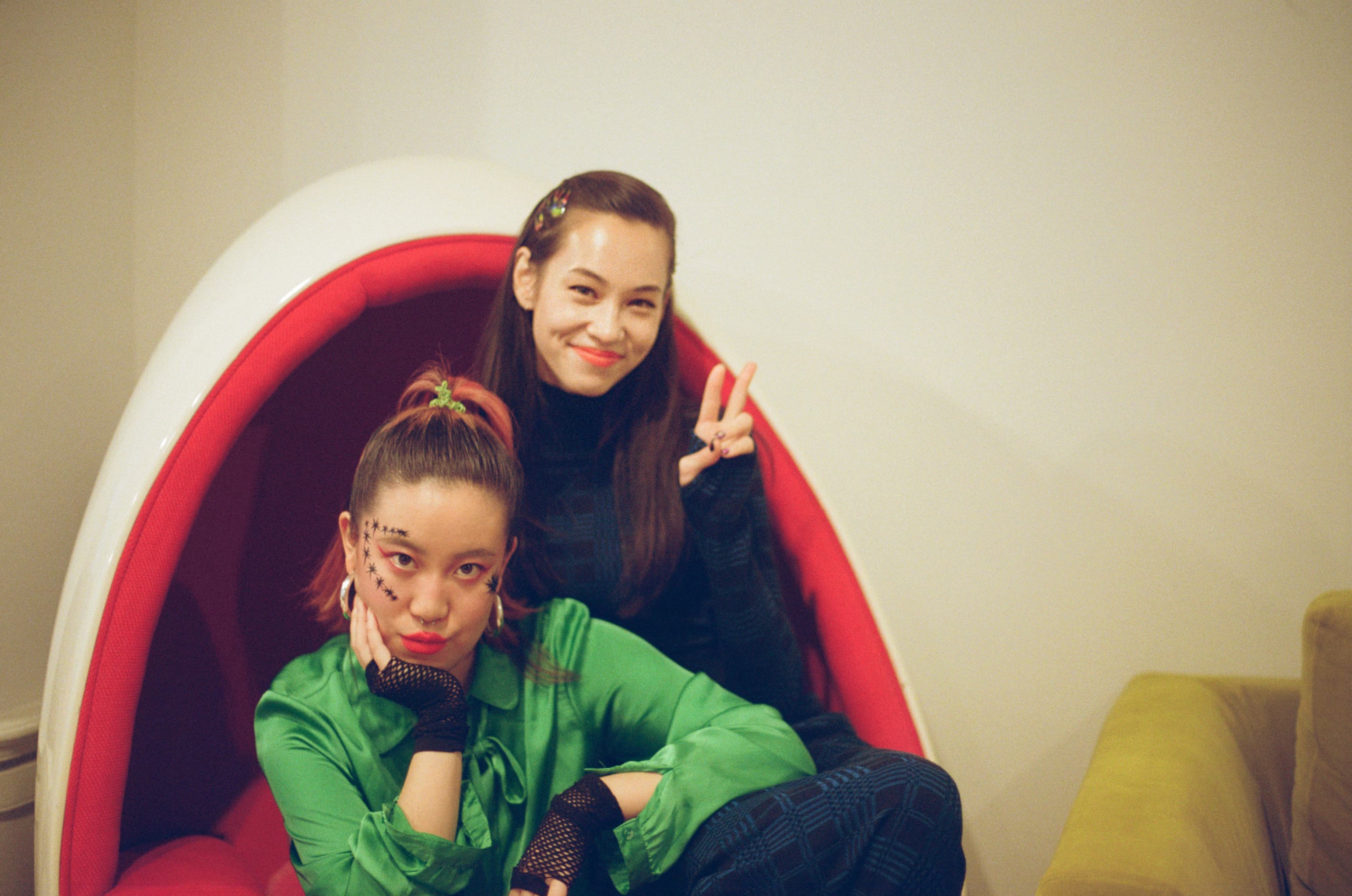

LOVE YOURSELF AND HAVE A FABULOUS 2020!
自分を愛してファビュラスな一年を!
希子ちゃんとレーナちゃんのクィア・アイ対談。
Happy New Year!
As we enter our first New Years of the Reiwa era, we’d like to start 2020 with a bang with "Queer Eye: We’re in Japan!"
Kiko Mizuhara, who had the role of being the Tokyo guide, and Lena-Grace Suda, who partook in the show as an interpreter,
spoke about situations and issues Japan should confront in today’s world.
What did they feel and what kind of power did they get from the Fab 5?
I want everyone that doesn’t feel confident about themselves to read the following conversation. Enjoy.
Photo_Marisa Suda
Styling_Masako Ogura
Hair&Make-up_Rie Shiraishi
Translation_Lena-Grace Suda




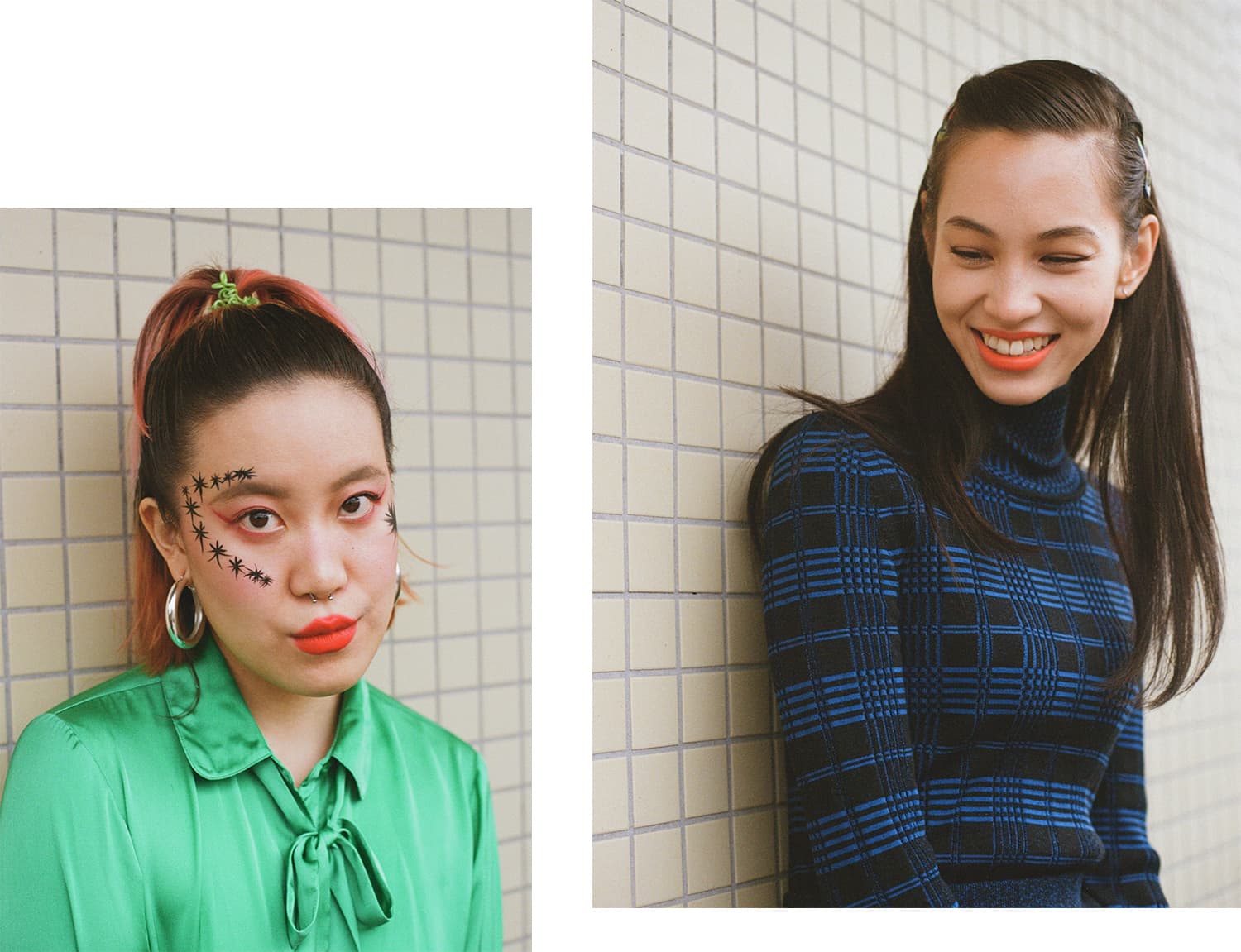

Right〈パコ ラバンヌ〉トップス¥73,550+TAX、スカート ¥69,350+TAX(共にエドストローム オフィス 03-6427-5901)、
〈OK〉シューズ ¥8,900+TAX(オフィスキコ info@officekiko.com)、タイツ スタイリスト私物
We Should Embrace the Good Things About Being Japanese
- ーDuring the opening scene of ‘Queer Eye: We’re in Japan!’ you, Kiko, text the Fab 5: ‘Japan needs Queer Eye!’ As I kept on watching, I wholeheartedly felt like we really did need them here. Yes, the ones that actually went through changes were the heroes but there were so many things that resonated with us, the audience too. Some time has passed since the episodes were released but it’s still a big topic in Japan. Kiko, as the designated Tokyo guide, you must’ve felt a lot of things from being a part of the process. The same goes to you, Lena, as you were their interpreter. Could you first talk about any memorable scenes that you had?
- Kiko Mizuhara (hereinafter Kiko): There’s way too many memorable scenes (laughs).
- Lena-Grace Suda (hereinafter Lena): So true! I wonder which scene I should pick…
- Kiko: I think for me, it was that scene where Yoko, who’s the first hero of the series, Tan, and I picked out her clothes. I was so nervous! Out of all the heroes, I had the most interactions with Yoko. I was so worried about how I could suggest some clothing options to her without being too aggressive and pushy. She’s a typical Japanese person that was born and raised here, with ways of thinking that she gained from her life experiences. Humility and doing things for others are beautiful traits Japanese people have and I thought those factors were something that should be treated with care.
- Lena: You had to explain the concept of ‘giving up on being a woman,’ which is a notion unique to Japan. Did that make you nervous too?


- Kiko: Yeah, I was figuring it out as I went because I didn’t know how to explain the concept. I also wondered if she really did want pretty clothes. I’m a fan of ‘Queer Eye’ so of course, I understand what makes the show entertaining, but I was anxious about whether or not the arrival of the Fab 5 in Japan would be welcomed. The foundation and culture that we have here are just so different from the States. What if the heroes didn’t take it well, even if we did everything with good intentions? They might’ve thought, ‘I’m fine just the way I am,’ you know? I believe what Yoko does at her hospice is amazing and so many people appreciate her already to begin with. I thought, ‘what else can we possibly do for her?’ During the beginning of her episode, in response to Tan telling her that it was her turn to be happy because she spent a lot of her time being selfless, Yoko goes like ‘hmm’ and didn’t seem to be fully convinced. But I actually understand her because you can feel happiness from serving others and being happy for yourself is a concept that feels American.


- Lena: Right, that thinking is quite American.
- Kiko: Yeah. But! I was moved by how Tan kept on complimenting her over and over without giving up. In Japanese culture, the act of complimenting others to that degree doesn’t really exist. As a result of him complimenting her a lot of times, Yoko began to be kinder to herself and that made me realize that what he was doing was one way of getting people to accept themselves! I learnt so much and it was funny how his words to Yoko touched me too.
- Lena: I see!
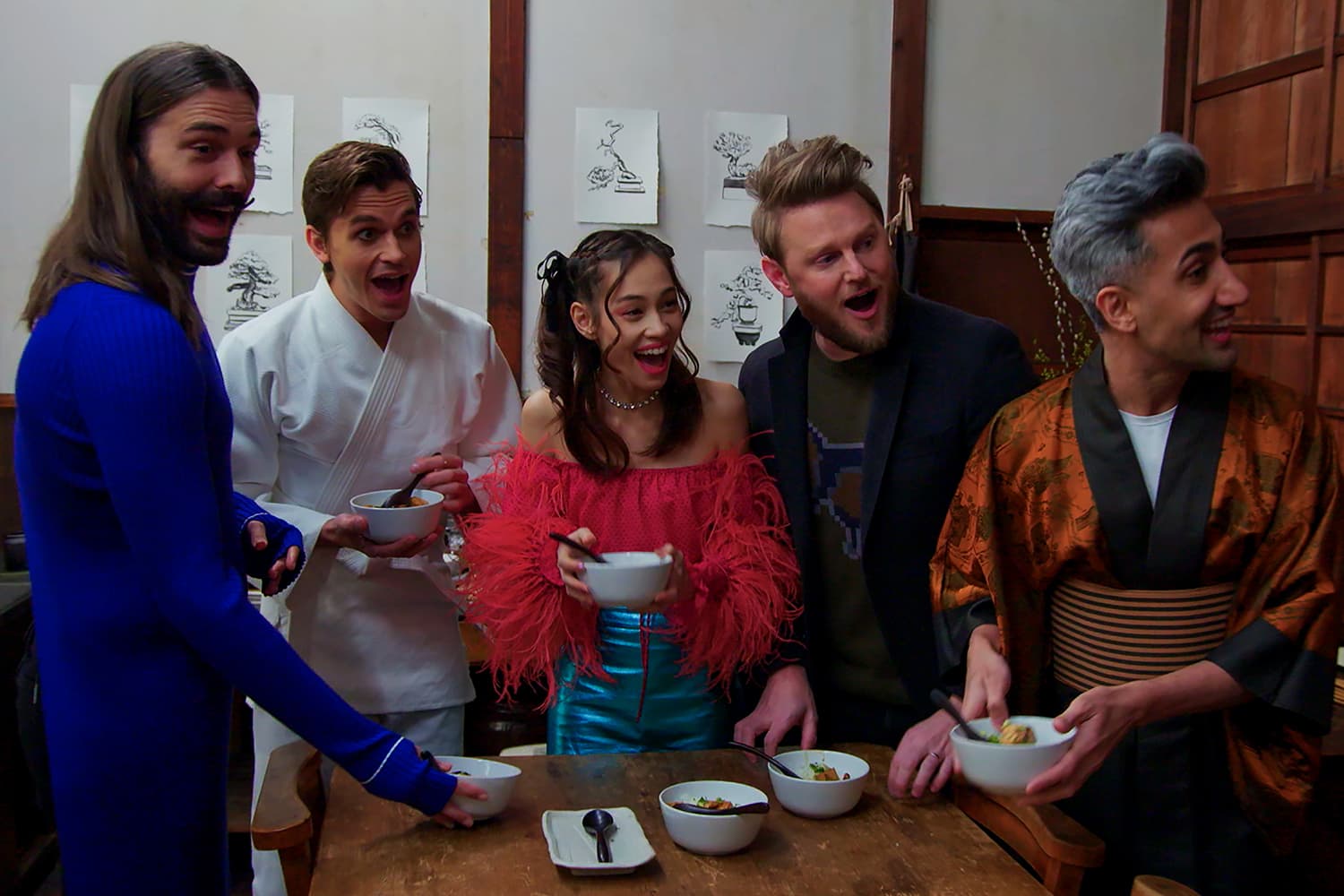
Preparing to Be The 6th Member of Fab 5
- Kiko: The reactions from people were good when the series came out, yeah? I feel like ‘Queer Eye: We’re in Japan!’ confronted what we should work on in an appropriate and natural way.
- Lena: I didn’t know ‘Queer Eye’ was this popular in Japan until it was released! Obviously, I know it’s super popular in the States.
- Kiko: That’s why I thought about my role in the show so much. There was an audition-like thing actually, and because I was already a fan of the show, I was able to convey my thoughts about the show. As a result, I got the part but I had to think about how to engage with the show.

- Lena: Do you mean you mulled over what your position was?
- Kiko: Yeah. Well, I did think I was supposed to act as the 6th member of the Fab 5. But my scenes where I explained about Japan to the Fab 5 were really hard!
- Lena: It looked tough! I feel like the Fab 5 really tried their best to understand Japanese culture.
- Kiko: There are a lot of things Japanese people should improve but instead of stating that said things are actual problems, it’s as though they’re so permeated that they’ve become just a part of everyday life. From the outside, it’s a serious issue but the people themselves don’t look at it like that; they lead a normal life. When Yoko was picking out her clothes, she said that she was content with making herself look pretty because she was a middle-aged lady. But I think she said that in a half serious and half comedic way. I do think that sort of thinking is subconsciously influenced by Japanese comedy-culture (especially women comedians) as well as patriarchal thinking. Once you trace the origins, there’s something dark there but the people that say self-deprecating things don’t feel that way. This sort of nuanced sensibility where things aren’t black and white; isn’t this uniquely Japanese? So that’s why I was like… ‘how am I supposed to explain something so conceptual?’ (laughs).

- Lena: Wow, explaining that comes with a big responsibility. Come to think of it, you must’ve felt an immense amount of responsibility by being their guide. You just said ‘nuanced’ but I also think saying ‘I’ve given up on being a woman’ is done in a semi-comedic way. On the surface, Yoko didn’t seem to care too much about it. Having said that, it’s still something that’s not entirely good.
- Kiko: Once you look into the origin, it does tie into how she couldn’t love herself. It also ties into things she couldn’t confront.
- Lena: In Yoko’s case, devoting herself to others is her life work. Doctor Tetsu Nakamura, who passed away in Afghanistan the other day, dedicated his life to helping others too. In a way, you can’t assert that Yoko was categorically bad for not loving herself. However, I really do think it’s all about balance; you have to love others AND yourself.
- Kiko: Yep. When I was given the mission to explain that, I studied so much before filming. If I didn’t fully understand the content, then I’d be lying to the Fab 5. By being a part of ‘Queer Eye: We’re in Japan!’ I was able to learn more about Japan. I feel like I grew as a person because I was given the opportunity to think more.
- Lena: After the series had aired, I actually looked at what people were saying online and you know how advocating for yourself is generally an American thing? There was a number of people who were worried that the heroes would become Americanized by doing ‘Queer Eye’ in Japan because Japanese people place importance on things like compromise and humility. But there were a lot of people that said something like ‘I didn’t have to be worried at all!’ after watching the episodes. Like you said, Kiko, I think it stems from the Fab 5 bringing out these qualities the heroes already had inside of them, instead of being too pushy. You don’t say ‘love yourself’ in Japanese but it’s definitely a latent feeling people have, right? In Yoko’s episode, Jonathan told her to look at herself in the mirror to do her hair and whatnot every morning, even if it’s for 5 minutes. Watching Yoko get excited over how beautiful she felt after following his advice made me realize that doing something as simple as treating yourself could lead to confidence.


- Kiko: I know what you mean. Makoto from the 4th episode became so handsome! Jonathan asked him if he looks in the mirror everyday and he replied that he didn’t at all. I was like, ‘people can change so much just by doing something small like looking in the mirror everyday.’
- Lena: Makeovers are something people abroad are familiar with but in Japan, it doesn’t have the same level of familiarity, no? I wonder if small actions led to huge changes precisely because it was filmed in Japan.
- ーYou mean the original ‘Queer Eye’ and ‘Queer Eye: We’re in Japan!’ have differences, yes?
- Kiko: I feel like the vibe was totally different. Because the Fab 5 and heroes couldn’t talk to each other directly, I feel like there was something fundamental there. Instead of only using words to persuade the heroes, it seemed like they were being more physical, like hugging. Both parties were trying to close the gap and that was lovely to see. I think the heroes were trying to understand the Fab 5 too. Because the Fab 5 did everything they could it was as though that made the heroes to feel like ‘if they’re doing this all for me, I have to change in order to make them happy.’ This could also be something that’s Japanese (laughs).

- Lena: True! I didn’t notice until you mentioned it. That’s very Yoko-esque (laughs). It did seem like the heroes were trying to lean in, in order to live up to the Fab 5. For instance, instead of being taken aback, Makoto was singing with them. Yoko was having the time of her life; she even said ‘yasss queen!’
- Kiko: You know that scene where Karamo brought Makoto to do yoga with his wife and Jonathan? That was the most powerful scene for me but what was it like on set?
- Lena: That scene… it makes you cry. Makoto cried so much that I thought we were going to stop filming for a second. All 4 heroes cried at least once but I think Makoto cried the most intensely in that scene. Karamo noticed him feeling upset and hugged him in silence. Worldwide, it’s hard for men to cry regularly and express their emotions to the extent Makoto did. I really thought it was a cathartic moment for him.
- Kiko: It was amazing. I cried too. I can cry right now, just thinking about it.
- Lena: Wait, you’re going to make me cry (laughs)! It makes you think that he was able to overcome one obstacle in that scene. There’s this scene where Tan takes Makoto shopping and they go to this café but that was impactful too. In Japan, being in a sexless marriage is a topic that people usually don’t bring up in cafes. But Makoto didn’t care about that and spoke openly. I felt like he had already started to gain self-confidence at that point.
- Kiko: Among what was filmed, I feel like he had the biggest transformation.
- Lena: Right! He has this habit of closing and opening his fists when he talks and at first, he did it a lot, but it started to subside along the way. I personally really love his hand gestures though; it’s unique. In my head, I interpreted the decrease of his habit as a sort of barometer to see just how confident he was becoming (laughs).


- ーCould you describe the Fab 5?
- Lena: Jonathan was interested in everything and he says what’s on his mind in a clear way. I think that’s a great thing. And he’s just so charming!
- Kiko: He knows who he is, so he was clear on what he liked and didn’t like! If he saw something as bad, even if it was a cultural thing, he’d stick to his opinion (laughs). Tan was sweet. He confronted things in a serious way and tried to understand. He met the heroes halfway while kindly suggesting how they could lead a better life. I feel like he taught me the way we ought to be, regardless of race.

- Lena: Between filming his scenes, he’d communicate with the heroes as well as you and the whole crew.
- Kiko: He lives in Salt Lake City, Utah right? Apparently he lives away from the city center and leaves when he has work but I felt like he had so much composure. That’s why he was such a gentleman. Oh, I want to say that Bobby, who does the interior part, is great!
- Lena: Yes, exactly! He designed the interior of the heroes’ homes and had a team he worked with, but it looked like a lot of work! They had to remodel the homes in a short period of time, so they worked while everyone was asleep.
- Kiko: Wow! Unlike American homes, Japanese apartments are small but he effectively used space and transformed the interior.
- Lena: Antoni was really sweet! Also, I was impressed with his knowledge of Japanese food. It was so cute watching him cook with the heroes. Karamo genuinely accepted the heroes’ feelings. He also listened to them talk about things that might’ve been hard for them to open up about. He provided a safe space for them to talk about anything.
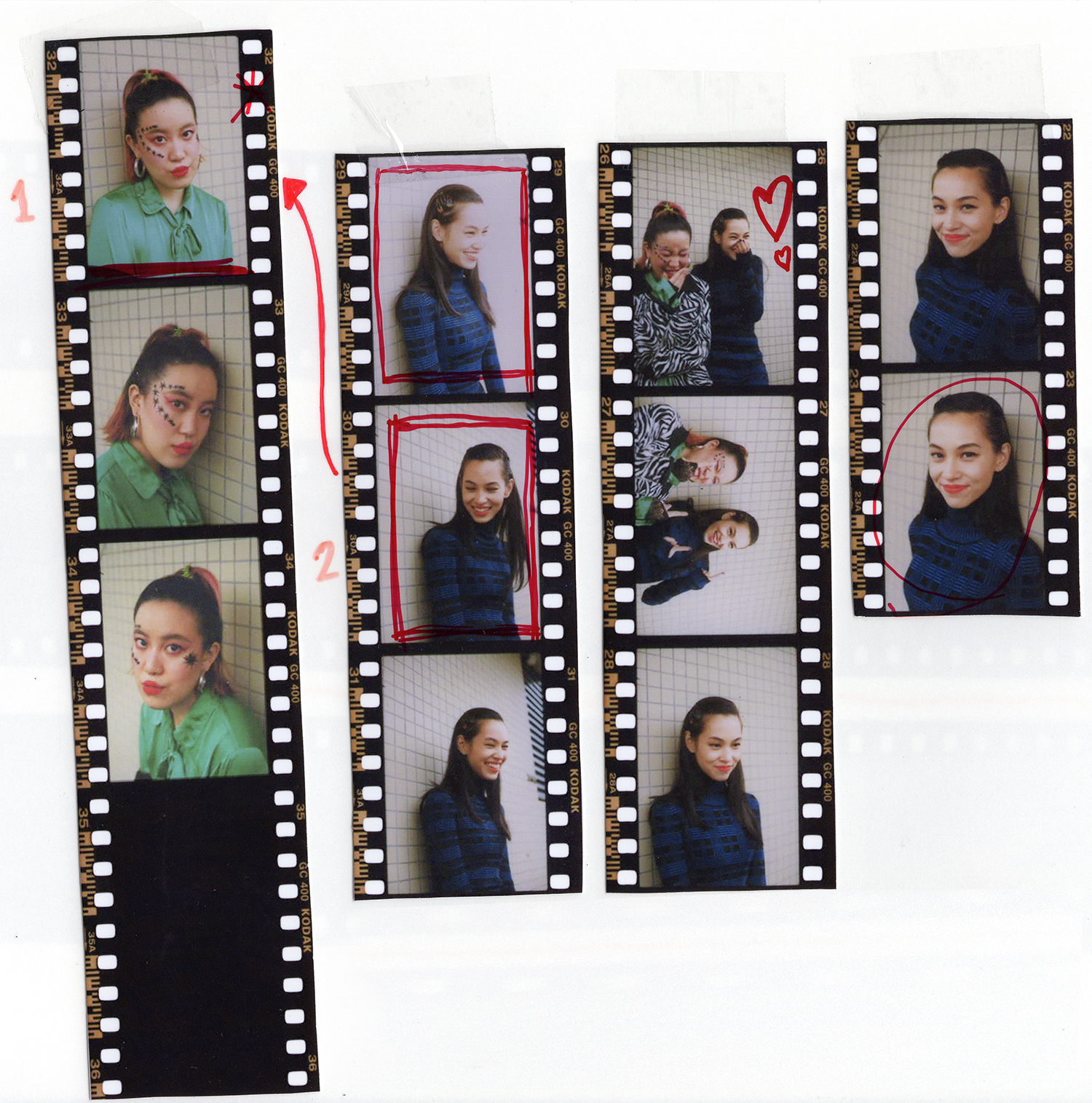
At the End of the Day, We’re All Human
- ーThe heroes transformed after engaging with the Fab 5 but like the heroes, were you influenced by the Fab 5 and did anything change?
- Kiko: As people that tell everyone that they’re going to be just fine, the Fab 5 have a strong presence. I was really curious to see what sort of influence they were going to have on Japan. The heroes and the Fab 5 spoke through Lena but ultimately, people look at each other in the eye when they talk and that made me realize that we’re all the same, as we’re humans. That’s what I thought after participating in the show. I came to the conclusion that there’s a kind of happiness we as humans feel, once you leave the notion of nationality like being Japanese or American at the door. When I saw the show, I thought it was such a pure thing. I think ‘Queer Eye: We’re in Japan!’ genuinely had no boundaries/borders. Both the heroes and the Fab 5 regarded each other’s cultures as something they could make light of. When the Fab 5 went to visit the heroes’ homes, they said things like ‘wow, it’s so small!’ It felt nice to see that they didn’t go overboard with respecting the culture; it was just right. It felt real, like there were no lies. I don’t think it’s because they’re American or anything. I think it’s because they’re them. This could be said about Makoto’s transformation too, but I think I was able to witness how people could change by interacting with each other and that’s a beautiful side of being human.
- ー4 people underwent transformations but in order for more Japanese people to change like they did, what should they do?
- Kiko: This might sound way too simple, but it comes down to understanding that we’re all human. I get the comment, ‘you’re pretty so you’re a special case’ and though that makes me happy, I have problems too. We’re all human so this is normal but what’s important is how we can support each other because we’re the same species that understand each other. Whether you were born in a poor place or privileged place, every single person has their own worries and problems. Even if you can’t lean in, I hope we could pray for other people’s happiness. I hope we can do something pure like that. That’s why I try my best to not judge others. I sometimes have my moments where I’m on the verge of making up my mind about someone but then I tell myself, ‘everyone goes through trying times. It’s okay.’ I think that alone could change a lot of things step by step.



I Want to Create Events Where Everyone Can Accept Each Other’s Individuality
- ーKiko, you have a concept at Office Kiko and that involves bringing the things you want to do to life. I think girls and women that see that feel motivated.
- Kiko: Thank you. It’s almost natural for me to try doing things that I want to do. Basically, everyone’s different and everyone’s valid. In other words, there are a lot of different individualities and I constantly strive to affirm that and uplift people.

- ーWhat’s Office Kiko’s goal in the near future?
- Kiko: I want to get more people involved. I’m not interested in subcultures and I don’t want to create a small community. I think my role is to spread the message to more people, instead of having fun in an exclusive group of people. For example, even if somebody had a style that’s not my taste or a style different from my own, if that person had the same creative, positive mindset, then we can connect with each other. As for my mission in the near future, I want to appeal to girls and women first but want to further widen the scope. Like Tan’s philosophy, through Office Kiko, I want to continue conveying that everyone should be themselves and encourage each other. Also, I was on a long trip to film a show and there were little moments where I was able to connect with local people with smiles and such, without speaking the same language. It was magical! There was something pure there. Smiling with someone is a normal thing but surprisingly, that experience isn’t as common as it should be… I want more people to cherish that pure feeling and connect with each other. So what I can do now is to make things that I can be proud of and do good things! Simple (laughs).

- ーSpeaking of which, your event, with Violet Chachki as the guest, in November was just so amazing!
- Lena: Thinking about that event is enough to make me cry. I can’t express how moved I was with words.
- Kiko: I know! By making that event happen, I felt like I got more confident. I feel like I was able to create a space where things like gender and status didn’t matter- anyone and everyone was welcome. It was like everyone that could possibly be there was there. Chachki is a gay drag queen but her performance went beyond those attributes and it was such a strong, powerful, and beautiful performance: I heard a middle aged man who didn’t seem to have any interest in this sort of culture say something along those lines and I was so moved. I think he was surprised. If he didn’t have an interest in gay or drag queen culture prior to that, he might’ve thought that they were comedic people who put on glamorous makeup. But his mind was changed. When I was there, I was like ‘yes, I did it!’ I felt like it was a success.
- Lena: The atmosphere changed in an instant. It was definitely the best event of the year.
- Kiko: It was fabulous!
- Lena: I felt so grateful that you invited her to Japan. It was rare to have an event like that. I think it was made possible thanks to you.
- Kiko: Right, I want to organize more events without forgetting the passion I felt then. A Taiwanese illustrator called Hang Ten showcased her artwork at the Chachki event but it felt like it was a new way of interacting… the borders between art, music, and entertainment was gone. I want to continue doing great things that can’t be explained by words. I want to create the ultimate space where people can’t help but dance; a space where people can let free. I want them to realize that we belong to the same species. Kind of like a tribe?
- Lena: The Office Kiko tribe (laughs).
- Kiko: ‘Queer Eye: We’re in Japan!’ and Office Kiko and everyone else belongs to the same tribe!

INFORMATION
Netflix Original Series, ‘Queer Eye: We’re in Japan!’
The Fab 5 are Antoni Porowski (food and wine expert), Jonathan Van Ness (grooming expert), Karamo Brown (culture expert), Bobby Berk (interior expert), and Tan France (fashion expert). These fabulous experts transform people who lack self-confidence both inside and out in this reality TV series. The show won 3 Emmy’s in 2018 and 4 awards in 2019. ‘Queer Eye: We’re in Japan!’ is the special edition set in Japan with Kiko Mizuhara as the Tokyo guide and Naomi Watanabe as the special guest.
Netflix独占配信中
Official website

